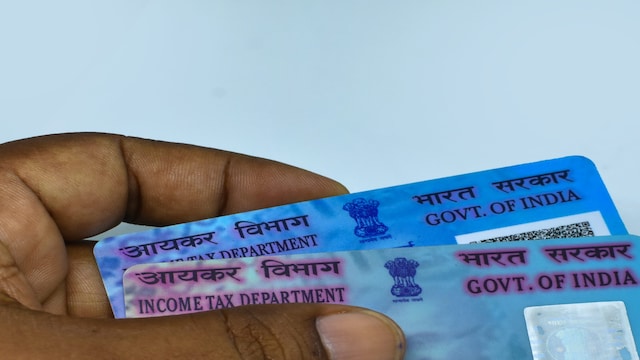
 1 / 5
1 / 5Existing PAN cards stay valid: Taxpayers with existing PAN cards can breathe easy—your old PAN remains valid. Sudhir Kaushik, Co-founder & CEO of Taxspanner, assures, “Existing PAN cards issued to taxpayers continue to remain valid, with no change in their status. However, taxpayers now have the option to upgrade their current PAN cards to a new version that includes a QR code for enhanced convenience and security.” This upgrade is voluntary and comes at no additional cost.

 2 / 5
2 / 5New PAN cards with built-in QR codes: All newly issued PAN cards will automatically include a QR code. Anand Kumar Bajaj, Founder, MD & CEO of PayNearby, highlights, “The upgraded PAN with QR code integration will simplify KYC processes, improve data accuracy, and enhance service delivery for users.” The QR code is designed to make identity verification faster and more secure.

 3 / 5
3 / 5A push towards digital governance: The PAN 2.0 initiative aligns with the government’s vision of a Digital Bharat, as announced in the Union Budget. According to CA Anand Bathiya, President of the Bombay Chartered Accountants' Society (BCAS), “The core intention from the government’s perspective seems to be the ability to tune in to different data sets with an objective of enhancing effective governance. A revamped framework would hence have been thought appropriate.” This integration will allow PAN to serve as a common identifier across various government platforms.

 4 / 5
4 / 5Upgrade process: The government intends to make the upgrade process seamless. While details on the rollout are still awaited, Bathiya expresses hope that the upgrade will be automatic, “My hope is that the upgradation should be automatic with no hassle for user application, etc.” For those applying for a new PAN card, the upgraded version with QR code and additional features will be issued by default.

 5 / 5
5 / 5Bridging the last-mile gap: The success of PAN 2.0 will depend on its reach and adoption. Bajaj notes, “An assisted business model could play a key role in ensuring that the benefit from this advancement in the new PAN card reaches the last mile.” Pritin Kumar, Partner, Deloitte India, added, "The OECD report on ‘Tax Administration 3.0: The Digital Transformation of Tax Administration’ highlights six key building blocks, the first of which is a digital identity for the secure and unique identification of taxpayers and citizens in an integrated manner. The PAN 2.0 project aligns well with the government’s vision for digital tax administration and is a welcome move."
